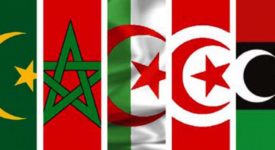Preliminary results in Morocco show two moderate parties on course to win almost half the seats in parliament, with the liberal RNI party having won the most seats in the country’s parliamentary elections, while the co-ruling moderate PJD Islamists suffered a crushing defeat. The pro-business National Rally of Independents (RNI) took 97 of the 395-seat parliament, another liberal and more progressive Authenticity and Modernity Party (PAM), secured 82 seats and the conservative Istiqlal took 78 seats. The long-ruling PJD party, which had been a coalition partner in the previous two governments, saw its support collapse, from 125 to just 12 seats, according to preliminary results, with most of the votes counted. While PJD had alleged “serious irregularities” amid the voting, accusing its rivals of vote buying, two moderate parties on Thursday (9 September) are already celebrating victory in the elections. The Strasbourg-based Parliamentary Assembly of the Council of Europe (PACE) was one of the main institutions in charge of monitoring the electoral integrity, having sent an 11-member mission to Morocco.
Turnout in Wednesday’s (8 September) parliamentary election was just over 50%, but still higher than in 2016. New voting rules in Morocco were expected to make it harder for bigger parties to win as many seats as before, something analysts say could cost the moderate PJD, which has been the biggest party in the past two parliaments. The north African country is officially a constitutional monarchy but King Mohammed VI who holds sweeping powers will name the prime minister from the party that wins the most seats in the 395-member parliament and appoints key ministers. The monarchy also sets the economic agenda and policy priorities in education, health, employment, and social welfare for the country of 37 million people and has commissioned a development model that the new government is being asked to implement.
“Reform in Morocco has been evolutionary more than revolutionary, and its reputation as a reliable partner for the EU is likely to be emboldened by an upcoming parliamentary election,” a commentary published by the news, intelligence and community platform Emerging Europe recently argued. Marek Grzegorczyk reminded that for Moroccans, the Arab Spring of 2011 was less about wholesale change than providing new impetus for reforms that had already been underway for several years. In March 2011, King Mohammed VI announced “comprehensive constitutional reform”, with the aim of improving democracy and the rule of law — these reforms, which culminated in a new constitution, gave the prime minister more executive power, including the authority to appoint government officials and to dissolve parliament, powers previously held by the king. Under King Mohammed VI’s rule, Morocco has established a strong relationship with the European Union, Grzegorczyk writes, becoming “Brussels’ most reliable partner in Africa.” Then it hardly comes as a surprise that Europe has followed the latest elections in Morocco with a great interest.
Article Categories:
EUROPE'S NEIGHBORHOOD






